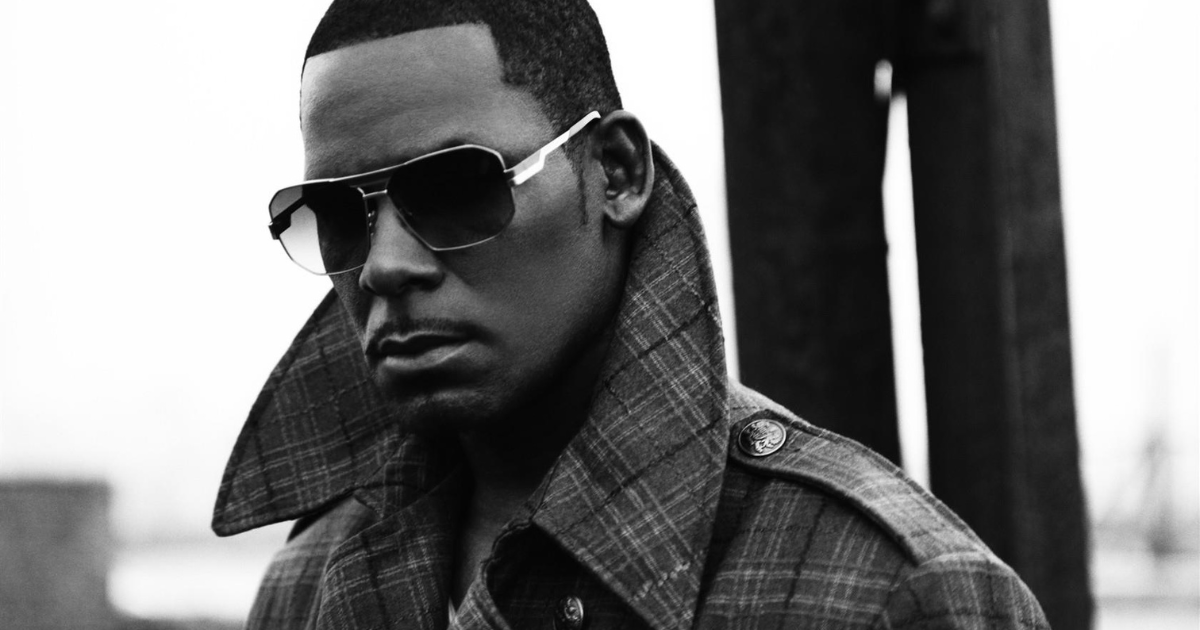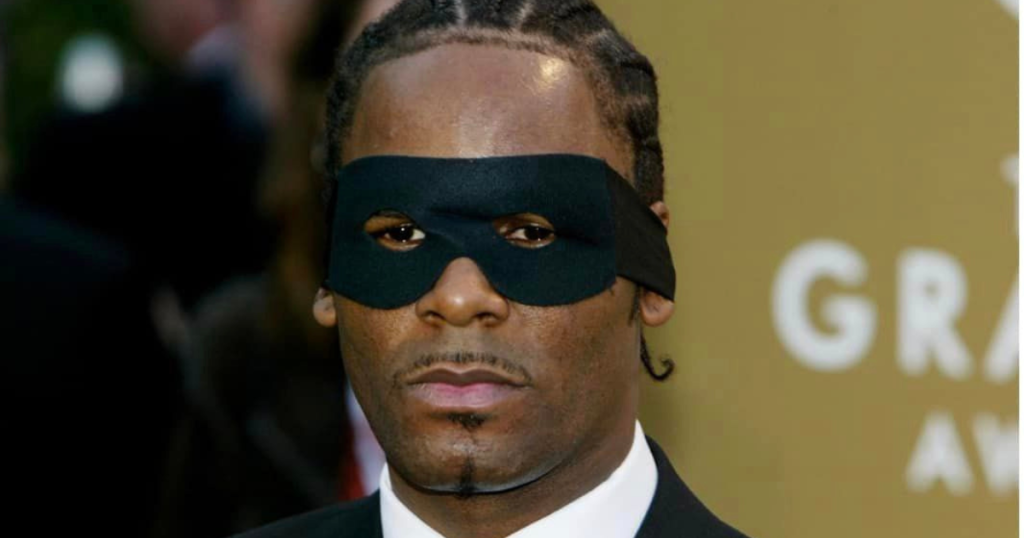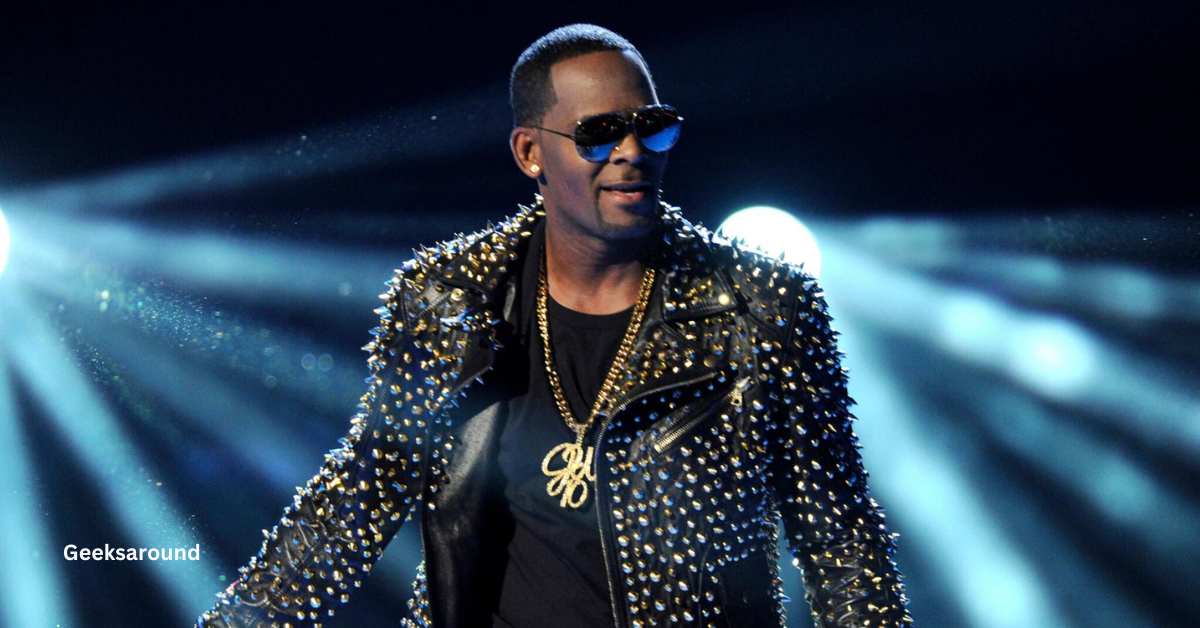r kelly net worth 1996 2024
In 1996, R. Kelly’s net worth was estimated to be in the range of $10 million to $20 million. This was during the peak of his musical career, with successful albums and hit singles contributing significantly to his wealth. This period marked a flourishing era for the artist before facing subsequent challenges that impacted his financial standing.
Key Takeaways
- R Kelly’s net worth in 1996 reflected his peak success in the music industry.
- Extensive collaborations with industry giants contributed to his financial standing.
- Diversified income sources from music, production, and endorsements enhanced his wealth.
- Chart-topping hits like ‘I Believe I Can Fly’ boosted his financial prosperity.
- Financial challenges and legal battles later impacted his net worth negatively.
R. Kelly’s Early 1990s Success

In the early 1990s, R. Kelly soared to fame and fortune with chart-topping hits like ‘I Believe I Can Fly‘ and ‘Bump N Grind,’ establishing himself as a sought-after producer and songwriter in the music industry. His undeniable talent and catchy tunes quickly propelled him to stardom, garnering widespread acclaim and a massive fan following. Kelly’s exceptional musical abilities not only led to his own success as a recording artist but also opened doors for him to collaborate with other prominent figures in the industry.
During this period, R. Kelly’s career was on a meteoric rise, with his songs dominating the airwaves and climbing the music charts. His knack for creating infectious melodies and memorable lyrics set him apart from his peers, solidifying his position as a music industry heavyweight. As his popularity soared, so did his financial gains, paving the way for a prosperous future filled with accolades and achievements.
Breakout Hits and Financial Gains
Amassing both critical acclaim and substantial wealth, R. Kelly’s breakout hits catapulted him into the upper echelons of the music industry in the early 1990s. With chart-toppers like ‘I Believe I Can Fly’ and ‘Bump N Grind,’ Kelly not only dominated the airwaves but also substantially boosted his financial standing.
These hits not only showcased his musical talent but also opened up lucrative opportunities in producing and songwriting for him. By 1996, R. Kelly had solidified his position as a successful recording artist, producer, and sought-after songwriter for various artists.
His album sales and sold-out tours became primary sources of income, further bolstered by collaborations with industry giants. The success of these endeavors not only enhanced his reputation but also contributed to his growing wealth. R. Kelly’s breakout hits not only marked a turning point in his career but also laid the foundation for his future financial gains and industry dominance.
Diversification of Income Sources
R. Kelly strategically expanded his revenue streams by diversifying his income sources through strategic collaborations and ventures within the music industry. This diversification allowed him to tap into various sources of income beyond album sales and tours. Let’s take a look at some of the key diversified income sources that contributed to R. Kelly’s financial success:
| Income Source | Description | Contribution |
|---|---|---|
| Songwriting | Writing songs for himself and other artists | Significant |
| Production | Producing music for his albums and other artists | Lucrative |
| Endorsements | Brand partnerships and endorsements | Additional revenue |
| Acting | Appearing in films and TV shows | Diversification |
| Merchandise Sales | Selling merchandise related to his music | Supplementary income |
These diversified income sources not only increased R. Kelly’s financial stability but also showcased his versatility and talent across various facets of the music industry.
Collaborations With Industry Giants
Expanding his influence and reach within the music industry, R. Kelly forged notable collaborations with prominent figures, solidifying his presence among industry giants.
- Collaborated with Jay-Z on the album “The Best of Both Worlds.”
- Teamed up with Celine Dion for the hit single “I’m Your Angel.”
- Worked with Michael Jackson on the track “You Are Not Alone.”
- Collaborated with Whitney Houston on the duet “I Look to You.”
These collaborations not only showcased R. Kelly’s versatility as an artist but also broadened his audience and cemented his status as a musical powerhouse. By partnering with such industry giants, R. Kelly was able to elevate his career to new heights and establish himself as a go-to collaborator for top artists. These collaborations not only contributed to his financial success but also solidified his reputation as a talented and respected figure in the music industry.
Recording Artist, Producer, Songwriter

How has R. Kelly’s multifaceted talents as a recording artist, producer, and songwriter shaped his enduring legacy in the music industry? R. Kelly’s prowess as a recording artist, producer, and songwriter has been instrumental in cementing his position as a music industry icon. His ability to craft chart-topping hits like “I Believe I Can Fly” and “Bump N Grind” showcased his songwriting skills, while his production work for other artists solidified his reputation as a sought-after producer.
Kelly’s distinctive voice and creative vision as a recording artist set him apart, leading to sold-out tours and lucrative album sales. Collaborations with industry giants further propelled his success, showcasing his versatility and adaptability in the ever-evolving music landscape. Through his talents as a recording artist, producer, and songwriter, R. Kelly has left an indelible mark on the music industry, shaping his enduring legacy as a true musical powerhouse.
Financial Ascendancy in 1996
During the pinnacle of his financial ascendancy in 1996, R. Kelly’s net worth soared to unprecedented heights, reflecting his immense success as a multifaceted music industry powerhouse.
- Released hit albums and singles that topped charts worldwide.
- Secured lucrative endorsement deals with major brands.
- Expanded his music production company, increasing revenue streams.
- Headlined sold-out concerts and tours, further boosting his financial standing.
R. Kelly’s diverse talents and strategic business moves propelled him to the forefront of the music industry, solidifying his status as a top earner in 1996. His ability to connect with audiences through his soulful music and engaging performances not only elevated his net worth but also cemented his legacy as a musical icon. The financial gains he achieved during this period laid the foundation for his subsequent endeavors and contributed significantly to his overall wealth accumulation.
Also Read: Lil Meech Net Worth
Album Sales and Tour Profits
R. Kelly’s financial success in 1996 was largely driven by his exceptional album sales and profits from sold-out tours. His albums were chart-toppers, and his tours were highly anticipated, drawing large crowds and generating significant revenue. Below is a table highlighting some key aspects of R. Kelly’s album sales and tour profits in 1996:
| Aspect | Details |
|---|---|
| Album Sales | Top-selling albums of 1996 |
| Tour Profits | Sold-out tour locations |
| Collaborations | Major artists collaborated with |
R. Kelly’s ability to connect with his audience through his music and performances was evident in the success of his album sales and tours. The collaborations he engaged in further solidified his position in the music industry and contributed to his financial prosperity during this period. This combination of musical talent, showmanship, and strategic partnerships played a pivotal role in shaping R. Kelly’s financial landscape in 1996.
Impact of Legal Issues
Amidst legal challenges, R. Kelly’s financial stability faced a significant downturn, impacting his net worth and career trajectory. The legal issues surrounding R. Kelly had various implications:
- Financial Drain: Legal battles drained his finances, leading to a gradual decline in his net worth.
- Career Setbacks: Controversies resulted in decreased album sales and difficulties in securing tour dates.
- Asset Liquidation: To cover expenses, asset liquidation, including selling properties, became necessary.
- Impact on Reputation: Convictions on multiple counts of sexual abuse led to a collapse of his financial empire.
These legal challenges not only affected R. Kelly’s financial situation but also tarnished his reputation and career prospects. The implications of the legal battles extended beyond monetary losses, influencing his ability to continue his music career and maintain his status in the industry.
Financial Strain From Legal Battles
The legal challenges faced by R. Kelly greatly strained his finances, leading to a substantial decline in his net worth. As accusations and lawsuits mounted, the costs of legal battles took a toll on his once-flourishing financial empire. Defending himself in court, paying for settlements, and dealing with the fallout from these legal issues had a profound impact on his ability to generate income.
The need to hire top legal representation and cover expenses related to ongoing court proceedings further depleted his resources. Additionally, the negative publicity surrounding these legal battles affected his music sales and tour opportunities, contributing to a downward trend in his financial standing. R. Kelly’s once lucrative career was overshadowed by the weight of these legal burdens, ultimately resulting in a notable decrease in his overall net worth.
Decline in Net Worth Trends
As financial challenges mounted, the trajectory of R. Kelly’s net worth began a steady decline, reflecting the impact of his legal battles and controversies.
- Legal issues took a toll on his finances, leading to a gradual decrease in net worth.
- Allegations of misconduct resulted in reduced album sales and tour opportunities.
- Controversies made it harder for him to secure lucrative collaborations and projects.
- The negative publicity surrounding his legal battles contributed to a decline in his overall financial standing.
Asset Liquidation and Expenses
Facing financial strain, R. Kelly was compelled to liquidate assets and manage expenses meticulously to navigate through his challenging financial predicament. As legal battles and controversies took a toll on his net worth, Kelly had to make tough decisions to stay afloat. Asset liquidation, including selling properties and other investments, became a necessity to cover mounting legal fees and daily expenses.
With a career once flourishing with sold-out tours and successful album sales, the need to downsize and streamline his financial commitments was a significant shift for the artist. Kelly had to prioritize essential expenses and negotiate settlements to mitigate the impact of his declining income sources.
Despite past wealth and success, the need for asset liquidation and expense management highlighted the financial challenges R. Kelly faced in 1996. This period marked a turning point in his financial journey, where adaptability and financial prudence became important for his financial survival.
Convictions and Financial Fallout
R. Kelly’s financial downfall intensified following his convictions on multiple counts of sexual abuse, leading to a substantial impact on his overall net worth and financial stability.
- Legal fees and settlements with accusers significantly depleted R. Kelly’s net worth.
- Loss of contracts and royalties due to convictions limited his income from music.
- Reports suggest R. Kelly faced bankruptcy and debt by 2024.
- His net worth was negative or unknown in 2024 due to legal issues and debts.
The aftermath of R. Kelly’s convictions resulted in a sharp decline in his financial standing. Legal battles drained his resources, leading to a decrease in income streams and a struggle to maintain his previous lifestyle. The loss of lucrative contracts and royalties further hampered his ability to recover financially. With mounting debts and diminishing revenue sources, R. Kelly’s once flourishing empire faced a grim reality of financial ruin.
Net Worth Status by 1996
In 1996, R. Kelly’s net worth reflected the culmination of his successful music career, extensive collaborations, and thriving ventures in the music industry. Despite legal issues that would later impact his financial standing, this was a period of financial prosperity for the artist. Below is a snapshot of R. Kelly’s net worth status by 1996 in a table:
| Assets | Income Sources | Collaborations |
|---|---|---|
| Multiple Properties | Album Sales | Songwriting for Aaliyah |
| Luxury Vehicles | Sold-out Tours | Production work with Michael Jackson |
| Investment Portfolios | Endorsement Deals | Collaborations with Jay-Z |
| Collaborations with Celine Dion |
During this time, R. Kelly’s ventures in music and his ability to connect with other industry giants were key contributors to his financial success. This period marked a peak in his career before facing challenges that would later impact his net worth.
Frequently Asked Questions
How Did R. Kelly’s Personal Life Influence His Early Career Success in the 1990s?
R. Kelly’s early career success in the 1990s was influenced by his personal life through hits like “I Believe I Can Fly” and collaborations, showcasing his talent and versatility. Despite later controversies, his artistry initially propelled him to stardom.
What Were the Key Factors Contributing to R. Kelly’s Financial Gains in 1996?
Key factors contributing to R. Kelly’s financial gains in 1996 included successful album sales, sold-out tours, lucrative collaborations, and his roles as a recording artist, producer, and songwriter. These endeavors greatly bolstered his net worth during that period.
Did R. Kelly Explore New Avenues for Generating Income Beyond Music in the Mid-90s?
In the mid-90s, R. Kelly primarily focused on music for income generation, leveraging his successful career as a recording artist, producer, and songwriter. While no significant evidence suggests he explored new revenue streams beyond music during this period.
Which Prominent Industry Giants Did R. Kelly Collaborate With During His Rise to Fame?
During his rise to fame, R. Kelly collaborated with industry giants such as Michael Jackson, Celine Dion, and Jay-Z. These partnerships not only showcased his versatility but also solidified his position as a powerhouse in the music industry.
Were There Any Significant Milestones or Achievements for R. Kelly as a Recording Artist by 1996?
By 1996, R. Kelly had achieved significant milestones as a recording artist, producer, and songwriter, with hits like “I Believe I Can Fly” and collaborations with industry giants. His success propelled him to fame and fortune in the music industry.
Conclusion
To summarize, the year 1996 marked a turning point in R. Kelly’s financial journey, as his success as a recording artist, producer, and songwriter reached its peak. Despite facing legal challenges and financial setbacks, Kelly’s net worth reflected the complexities of fame and fortune in the music industry. The interplay between talent, controversy, and economic repercussions shaped his financial standing during this pivotal year, showcasing the highs and lows of celebrity finance.







